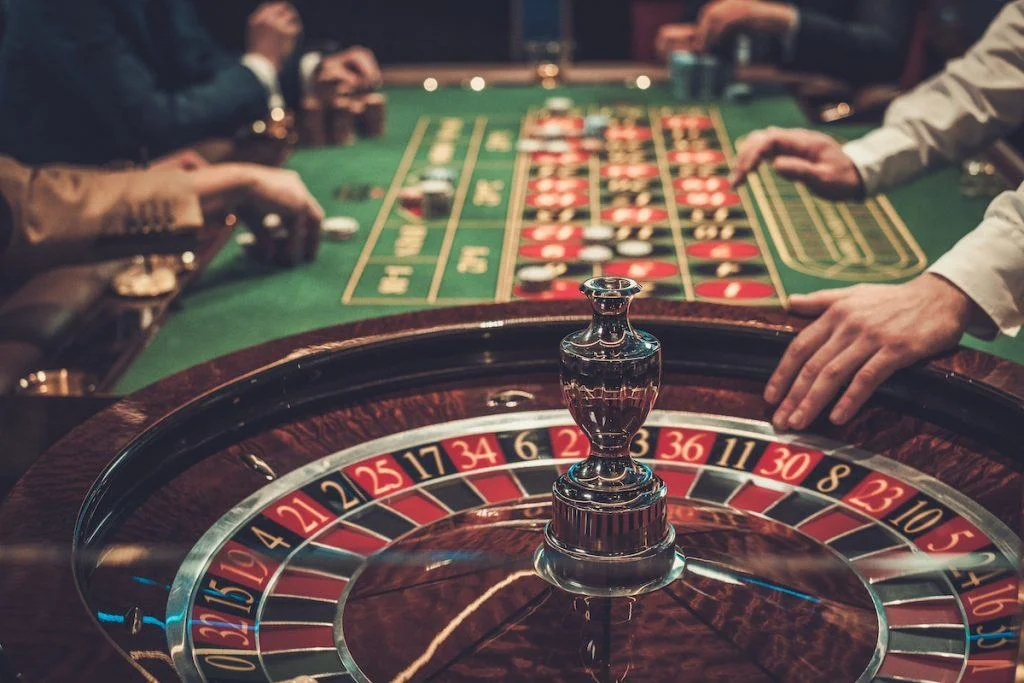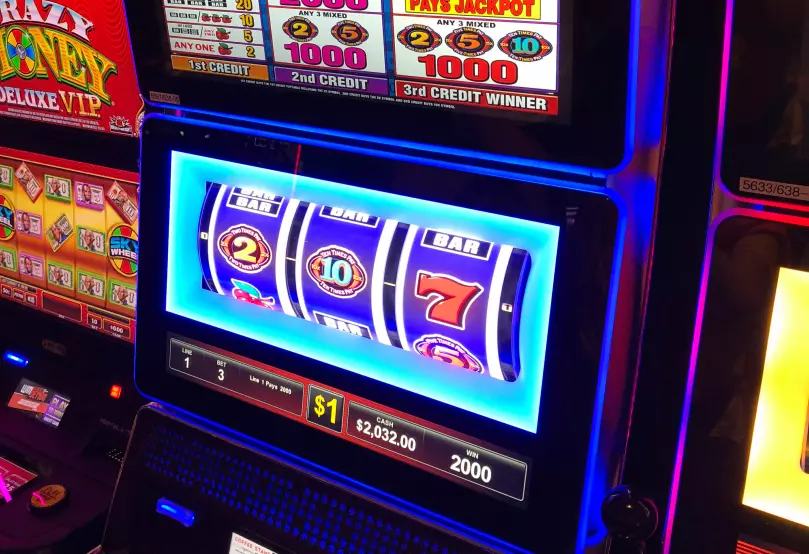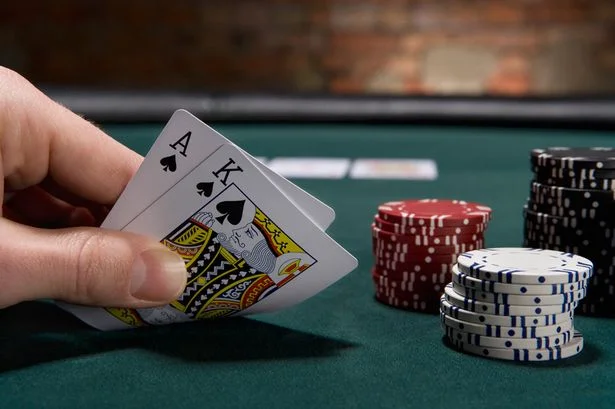How To Become a Casino Dealer
If you’re enthralled by the electrifying atmosphere of casinos and have a keen interest in the gaming industry, you might have wondered if you have what it takes to become a professional casino dealer. This career path promises an opportunity to immerse yourself in the captivating world of gambling, where every day brings new challenges, thrilling games, and interaction with diverse clientele. In this guide, we will delve into the journey of becoming a casino dealer, detailing the requirements, training, and essential skills needed to excel in this role. Our team, comprised of former casino dealers, will provide in-depth insight into this exciting field. If you have an ambition to deal at the blackjack table or spin the roulette wheel professionally, this guide is essential reading. Let us help you understand the path to achieving your dreams of becoming a casino dealer.
Requirements For Casino Dealer
To embark on a career as a casino dealer, aspirants must meet certain prerequisites set forth by the industry. These requirements are not mere formalities; they are vital for maintaining the casino’s reputation, ensuring smooth operations, and fostering a welcoming atmosphere for patrons. Essentially, they serve to ensure that only individuals with the requisite skills, personality traits, and commitment can take on the challenges inherent in dealing.
Casino dealer candidates are expected to:
- Possess quick mental arithmetic capabilities – this is essential for managing wagers, payouts, and ensuring fairness in games.
- Maintain a neat and professional appearance – a dealer’s presentation can greatly affect a casino’s ambiance.
- Exhibit excellent communication skills – since dealers engage with diverse patrons, they must have the ability to interact effectively and diplomatically.
- Be adept at multitasking – dealers often have to oversee several aspects of a game simultaneously.
- Show proficiency in handling pressure – the ability to maintain composure in high-stakes environments is vital.
- Have a comprehensive understanding of casino games – a thorough knowledge of rules and strategies ensures the integrity of games.
- Possess at least a high school education – while a college degree may not be mandatory, a fundamental level of education is.
- Be willing to undergo a dealer audition or on-the-job training – this allows casinos to assess a candidate’s potential.
- Have no felony convictions or felony theft offences – this ensures the dealer’s reliability and integrity.
- Pass a drug test upon employment – a clear drug test is usually a requirement to maintain a safe and productive work environment.
- Obtain and maintain a casino dealers license– the specifics for this vary by state.
- Be extremely flexible in work schedule – willingness to work nights, weekends, and holidays is often expected.
These requirements stem from the need to uphold the casino’s image and the integrity of its operations. A dealer is not just a game operator, but an ambassador of the casino’s brand and a key player in providing memorable customer experiences. Despite the absence of a college degree requirement, the list underscores the importance of certain skills, a clean record, and the dedication necessary for successful casino dealing.
How Old Do You Have To Be A Dealer At a Casino
In order to become a dealer in a casino, the minimum age requirement is typically 18 or 21 years, though this varies depending on the specific jurisdiction. In the United Kingdom, the legal gambling age is 18, so you must be at least 18 years old to work in a casino as a dealer. However, in the United States, the age requirement can be either 18 or 21, depending on the state. It’s essential to check the local laws and regulations in your specific area or the area you wish to work in. Age is not the only requirement to become a dealer; there are several other factors like skills, training, and licensing that are also important.

How Long Does It Take To Become a Casino Dealer
Once the initial requirements are fulfilled, aspiring casino dealers can advance to the crucial next step – training at a reputable casino dealer’s school or academy. A dealer’s school is a specialised training institution where individuals learn the art and skill of dealing various casino games. It is an essential foundation for anyone aiming to work in this profession, providing comprehensive understanding of game rules, dealing procedures, and customer service etiquette.
The duration of casino dealer training can vary considerably depending on the specific curriculum and the games included in the course. Typically, training in a single game lasts between four to eight weeks, but it could be longer for more complex games or if multiple games are being learnt.
Casino dealer schools offer a variety of learning modes to cater to different needs. Some provide traditional face-to-face courses allowing direct interaction with seasoned instructors, while others offer online classes for those who prefer the flexibility of remote learning. Regardless of the mode, it is paramount that instructors should have prior or current experience as casino dealers, and each game should ideally be taught by a separate specialist teacher.
In the UK, several institutions offer dealer training, including:
- The National Gaming Academy at Blackpool and The Fylde College
- London Academy Casinodealer
- The Gaming Academy
Meanwhile, in the U.S., there’s a myriad of dealer schools such as:
- Crescent School of Gaming and Bartending
- PCI Dealer School
- Casino Dealer College
These schools provide comprehensive training programs, helping aspirants master the skills and knowledge necessary for a successful career in casino dealing.
Completing Dealer Training in a Casino
In rare instances, it is also possible to receive dealer training directly within a casino. This is not a common scenario, but it has been observed, particularly in cases of newly opened establishments. These casinos may opt to conduct in-house training courses as they set up their operations, equipping their employees with the skills and knowledge essential to the roles they will be performing. Upon successful completion of these courses, trainees are often directly employed by the casino, allowing them to begin their careers in dealing without delay. This approach offers the added advantage of familiarising trainees with the specific practices and culture of the casino where they will be working. It’s worth noting that this kind of opportunity is relatively rare and specific to certain circumstances, but it certainly offers an alternative pathway into the profession.
How Much Do Casino Dealers Make
The salary of a casino dealer can vary widely, primarily based on their skills and experience, as well as the specific casino they work in. Other factors such as the location, the games they deal, and their level of customer service can also influence their earnings.
In the UK, according to data from multiple sources, the average annual salary for a full-time casino dealer ranges from £15,000 to £20,000, excluding tips. However, with the addition of tips, which can be substantial, their income can rise significantly. On an hourly basis, casino dealers typically earn around £8 to £10.
On the other side of the Atlantic, in the USA, the story is somewhat similar. The annual average salary for a full-time casino dealer, excluding tips, is reported to be in the range of $16,000 to $31,000. However, when tips are factored in, the average annual income can potentially increase to $50,000 or more. The average hourly rate for casino dealers in the U.S. ranges from $7.25, which is the federal minimum wage, to $15, not considering tips.
Dealer Career Development
The career trajectory in the casino industry is promising, with numerous opportunities for dealers to advance professionally. As they gain experience and demonstrate competence, dealers may progress into positions such as a Dealer Inspector, Casino Manager, or Career Manager.
- Dealer Inspector. This role involves overseeing the operations of casino games and ensuring the accurate execution of rules and procedures. The Dealer Inspector closely observes the games, monitors the dealers’ performances, and manages any disagreements or controversies that may arise. Their goal is to maintain the integrity of the games, ensuring fair play and a pleasant gaming experience for all patrons.
- Casino Manager. This is a more senior role that involves the overall management of the casino’s operations. As a Casino Manager, a former dealer would be responsible for supervising all casino staff, formulating and implementing operational policies, and overseeing the maintenance of the casino environment. Additionally, they would be tasked with ensuring customer satisfaction and profitability, making strategic decisions that affect the casino’s success.
- Career Manager. This role, often found within larger casino organizations, involves managing employee career paths and development within the company. A Career Manager would be responsible for identifying career development opportunities for employees, planning training and development programmes, and assessing employees’ skills and performance. They play an instrumental role in retaining talent and ensuring an efficient, motivated workforce.
There are other roles a dealer might consider as well, such as a Pit Manager or a Gaming Manager. A Pit Manager oversees the operations of a specific area of the casino (the ‘pit’), managing the dealers within that area and ensuring all games run smoothly. On the other hand, a Gaming Manager is responsible for the strategic planning and coordination of gaming operations, including the selection of new games, gaming promotions, and managing gaming budgets.
All these roles require a comprehensive understanding of casino operations, excellent interpersonal skills, and a strong commitment to upholding the highest standards of integrity and customer service. Each role offers its unique challenges and rewards, providing an enriching and dynamic career path for those interested in the casino industry.
Casino Dealer Schedule
There is no universally fixed working schedule for casino dealers as it largely depends on the specific casino they are employed in. However, on average, dealers typically work around 8 hours per day. These shifts may be during daytime, evenings, or overnight, given that most casinos operate round-the-clock. Many dealers work full time, but part-time positions are also not uncommon. As for the number of days worked per week, it can range from four to six days, depending on the casino’s scheduling and the employee’s preference. It’s important to note that weekend and holiday work is often required given the nature of the industry, which aims to provide entertainment and service without interruption. Flexibility, therefore, is a key attribute for anyone considering this profession.
Benefits of being a Dealer in a Casino
Being a dealer in a casino comes with numerous advantages that span across personal, professional, and financial aspects of one’s life. Here are some notable benefits:
- Interaction with Diverse People
As a dealer, you interact with a wide range of people from different backgrounds and cultures. This not only enhances your interpersonal skills but also makes work more interesting and exciting.
- Flexibility
Casinos operate round-the-clock, offering flexible shifts that can suit various lifestyles and personal commitments.
- Earning Potential
Aside from the basic salary, dealers often receive generous tips from patrons, significantly enhancing their income. The potential to earn more increases with experience and skill.
- Job Security
The gaming industry is continuously growing, leading to a steady demand for casino dealers. This results in solid job security, particularly for those who are skilled and experienced.
- Growth Opportunities
As detailed above, a career in the casino industry offers ample opportunities for professional advancement. Starting as a dealer can lead to higher-level roles such as Dealer Inspector, Casino Manager, or even Gaming Manager.
- Exciting Work Environment
Casinos are lively, dynamic environments, making work enjoyable and far from monotonous. Whether it’s the excitement of the games or the thrill of big wins, there’s always something happening.
- Developing Valuable Skills
Dealing requires and develops various valuable skills such as mental agility, customer service, interpersonal communication, and problem-solving. These skills can be beneficial not only within the industry but also in many other career paths.
Games to Choose From
Upon embarking on their journey as a dealer, each individual has the opportunity to specialise in a specific game. This choice is typically made at the beginning of the dealer training and largely depends upon the individual’s interest and skill set. It’s worth noting that each game requires a unique set of skills and understanding, making this initial choice a crucial part of the dealer’s career path.
Games Dealers Can Specialise In
- Blackjack: As a blackjack dealer, one needs to possess quick mental agility as the game requires fast calculation and decision-making. The dealer plays a crucial role in maintaining the game’s pace and ensuring its smooth operation.
- Poker: In poker, the dealer’s role extends beyond dealing cards. A poker dealer must have a thorough understanding of the game’s rules and be capable of controlling the game, managing the pot and making rulings when necessary.
- Roulette: A roulette dealer, also known as a croupier, operates the roulette wheel and manages the betting layout. This role requires physical stamina, as it involves standing for long periods, as well as a keen eye for detail to monitor the bets and payouts.
- Craps: Craps is a complex, fast-paced game with multiple bet types. A craps dealer needs a solid understanding of these bets and the game’s rules, in addition to excellent hand-eye coordination to handle the dice and chips.
- Baccarat: Dealing baccarat requires precision, as the dealer must accurately manage player and banker hands, as well as track commissions on certain bets. A thorough understanding of the game’s rules and procedures is essential.
Conclusion
In conclusion, embarking on a career as a dealer in a casino is a rewarding and dynamic choice, offering interaction with a diverse array of people, ample opportunities for growth, and an exciting work environment. From mastering the rules and intricacies of various games to honing interpersonal skills and mental agility, the journey to becoming a dealer is laced with opportunities for personal and professional development. Remember, this is just a glimpse into what the profession entails. If you have any further questions or wish to delve deeper into the process of becoming a dealer, please don’t hesitate to contact us. We’re here to guide you through this thrilling journey, helping you gain a comprehensive understanding of the profession and navigate your path towards becoming a successful casino dealer.



